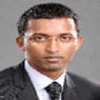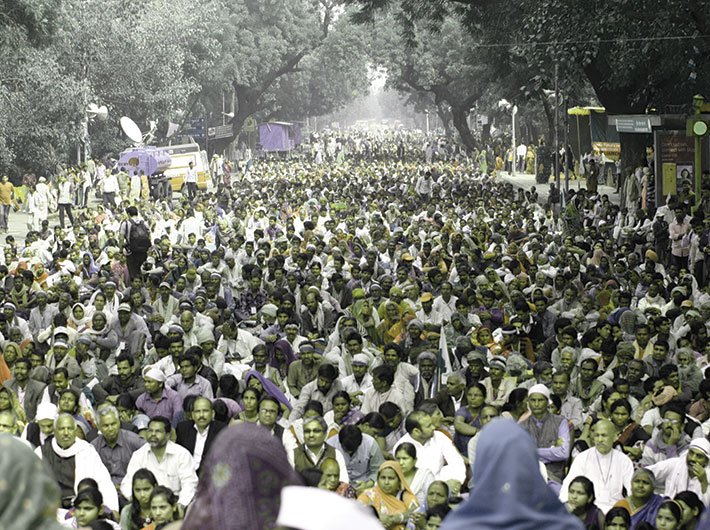There are a number of similarities between the mid-1930s and the current economic conditions
The rise of populism – the revolt of common people against the elite or the ‘system’ – has been one of the broad themes of the past decade. Till 2000, populism was confined to obscure corners of the world, in Latin America and the former Soviet Block, and was largely ignored by the developed countries. The last time populism was strong across the world was in the 1930s. Over the last few years, it has re-emerged as a major force in the developed world with the rise of UKIP in UK, National Front in France and Podemos in Spain to give a few examples. Populism is symbolised by Maduro/Chavez in Venezuela, Durete in the Philippines and Erdogan in Turkey. In India, the populist wave started in 2011 with the Anna Hazare-Arvind Kejriwal-led India Against Corruption movement.
There are a number of similarities between the mid-1930s and the current economic conditions: high levels of debt, high levels of central bank debt monetisation, low interest rates and increasing inequality. There are also a number of important differences like better economic conditions, a global liberal consensus and a longer history of democratic institutions. Since most of the classical populists were disdainful of the opposition and curbed media and free speech, in thinking about the progression of populism, it is most important to observe how conflict is handled. It is unlikely that the current crop of populists will follow the footsteps of their predecessors, though it would help to keep history in context to see if the template is followed.
The roots of the current round of populism lie in the economic system which resulted in the financialisation of the economy. The main characteristics of this ‘neoliberal’ regime are globalisation, labour market flexibility, and maximisation of shareholder value. These ideals combined to create a mix of rising inequality (within country) and lower labour share of GDP, which resulted in low economic growth and lower productivity growth as exposed by Thomas Piketty in his tome “Capital in the 21st Century” [2014]. These trends were exposed by the collapse of the global debt bubble in 2008-09.
As the citizens of the world realised that the system was dysfunctional; serving capital and not households, they rebelled by choosing populist parties that promised to shake up the status quo. The impact of globalisation is felt not as movement of labour but more as free movement of goods and services. This results in lower domestic prices but also reduces domestic demand and production (job loss). In the post-war decades, the state was more paternalistic and managed the masses’ exposure to the vagaries of markets by providing job and social security. This contract that the elites keep the power but take care of the masses is what has broken in the past three decades. Post 1980s, states began to pare back their influence on the market. Fiscal prudence and small government became the buzz words and governments systematically went about weakening labour unions, ‘liberalising’ labour markets, and reducing social security in the belief that competitive markets will emerge for these services and government intervention in markets is bad. Populism is a response to this ‘neoliberalism’.
The argument that populism reflects rising social/economic inequalities was first made by Seymour Lipset and Daniel Bell in the 1950s, while studying the rise of populism in the 1920s. Their argument mirrors the modern case that populist support is generally stronger among older people, men, the less educated, the religious, and ethnic majorities (see, for example, work of Gøsta Esping-Andersen and Pippa Norris).
The above economic explanation is not completely valid as populism has also arisen in several of the most egalitarian, best educated and most secure populations in the world, for example, in Sweden and Denmark. The alternative account is provided by a cultural backlash thesis. This theory predicts that support for populism will be stronger among those holding traditional cultural values, which mostly comprise the older and less educated groups of the population.
Combining the two theses, Cas Mudde (2013, 2014) defined populism as a loose set of ideas that share three core beliefs: anti-establishment, authoritarianism and nativism. It emphasises faith in the wisdom and virtue of ordinary people and embrace resentment against existing authorities.

Populists display authoritarian leanings, and favour direct democracy via opinion polls and plebiscites rather than institutional checks and balances. Populists come in all shapes and sizes spanning the economic spectrum (from Lenin to Hitler) and political spectrum (Mussolini to Peron). But they take advantage of a similar set of conditions to gain power:
• Populists come to power during sustained weak economic conditions
• They take advantage of a policy logjam where consensus is difficult, giving rise to the ‘need’ for a strong leader
• They take advantage of increasing inequality, channelling the rage of the masses against the “establishment”
• They garner votes by polarisation of voters brought about by wealth gaps or xenophobia
On gaining power, populists of the past shared many core beliefs and goals:
• They always claim to work for the ‘people’
• They promote nationalism as a social glue necessary to take difficult steps
• They have a general disregard for debate and disagreement
• Populists almost always follow protectionist economic policies
Going by past examples, economic growth in the next decade will be determined more by populist policies and not by fiscal and monetary policies as we have grown accustomed to. Classical populist economic policies include protectionism, nationalism, infrastructure building, increased military spending and often capital controls. However, we no longer live in the classical world of the twentieth century. The advent of the internet has changed the structure of economies, consequently altering the political economy of populism. In the twentieth century, authoritarians tried to control the press and the media to control the narrative. Without exception, the press in the countries ruled by populist regimes was sponsored and controlled by the state. In the twenty-first century, the press is countered by spreading too much information so that people don’t know what to concentrate on or by propagating false news whereby trust in the media is eroded. The internet also allows for greater monitoring and control of people.
However, it is hard to see how the values which drove populism in the early years will yield similar results today. The modern template of authoritarian regimes is China. Unfortunately, China does not have an ideology and it only projects economic power. Unlike past populists like Hitler, Lenin, and Roosevelt (representing Nazism, Communism and Socialism respectively) who had a new world vision (decidedly wrong in retrospect, but modern when judged by their time), the current crop of populists are revisionists in their outlook, pointing to a better past. Putin’s Russia looks back to the Soviet (or maybe Czarist) era as a time of Russian greatness, and Indian leaders point to a mythical time when India was the proverbial golden bird (pre-Islamic India) or to Vedic times (all knowledge resides in the Vedas).
The success of regimes depends on their economic success. Protectionism and infrastructure building in the future may not create the jobs that they did in the 1930s. Politically speaking, the Chinese will not steal our jobs, but robots will. After all, you cannot stop the import of computer algorithms. Populism may be on the rise but it will not last unless it delivers either economic growth or a more equitable income distribution. Since China was the first ‘modern’ populist state, we should see how their political system evolves in the next decade for a glimpse into the future of the world.
Roy is a fellow at Pahle India Foundation
(The column appears in the May 1-15, 2017 issue)

